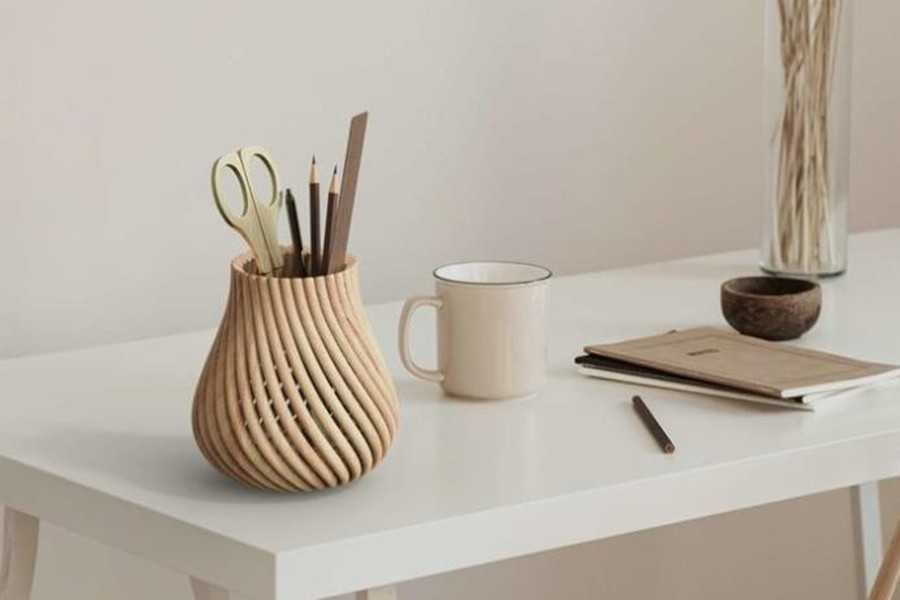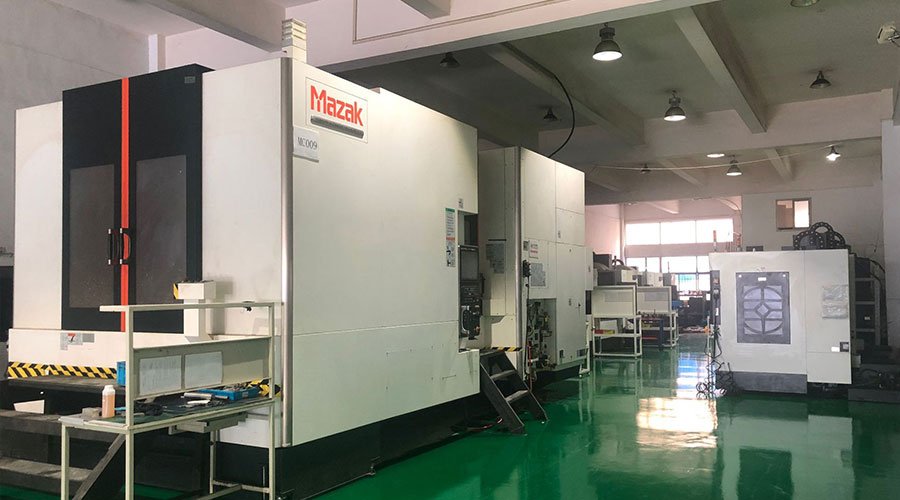As an emerging technology, 3D Printing can have a profound impact on the development of society and the progress of intelligent manufacturing, whether it is in artistic creation or in intelligent manufacturing industrial applications.
1.Metal material 3D printing technology
The performance of metal materials of large parts such as 3D printing titanium alloy large overall main bearing structural parts can reach or approach the level of forgings. The 3D printing technology to repair the turbofan engine blade technology realizes the performance of the 3D printing and the part matrix bonding area to meet the requirements of the part. Compared with traditional welding, metal 3D printing repair has the following characteristics:
(1) The heat-affected zone is small and does not affect the stress distribution of the matrix structure;
(2) No need for heating and subsequent heat treatment;
(3) The metallurgical combination of the 3D printed structure and the matrix is dense, and the performance is close to the original structure of the part;
(4) The structure and performance of the 3D printing area reach the level of forgings;
(5) Automatic control, less processing allowance.
1.1 Local 3D printing forming of large forgings
Take the AP1000 nuclear power main pipeline as an example. The design requires the use of ultra-low carbon nitrogen-controlled stainless steel for integral forging. The main difficulty in forging production is the formation of two nozzles, and the material utilization rate of forgings is below 15%. Inspired by 3D printing technology to repair turbofan engine blades, the forming of nuclear power main pipeline can be simplified to forging or extruding stainless steel pipe + 3D printing nozzle forming, which can greatly reduce the production difficulty and cost of nuclear power main pipeline.

1.2 Online repair of large parts
Large parts such as generator rotors, water turbine blades, and marine crankshafts will have local cracks, wear and deformation during use. The traditional repair welding method requires machining → preheating → welding → machining → heat treatment. repair. The repair work needs to be carried out on large professional equipment, but the performance of the repair area is lower than the original organization of the parts, which increases the repair cost and repair cycle, and the repair effect is not ideal. The portable and movable metal 3D printing equipment that uses the combination of robots and 3D printing technology can change this situation and realize the on-site repair of large parts, and even online repair.
2.Non-metallic materials 3D printing technology
Large castings such as steam turbine cylinder blocks, blades of hydroelectric power units, and metallurgical equipment frames weighing between (20~500)t are generally produced by wood mold + sand casting, and can be manufactured using 3D printing technology.
2.1 3D printing of large casting models
Non-metallic material 3D printing technology can realize the rapid establishment of complex models. For large castings with large production batches, complex shapes and high surface requirements, wooden molds can be replaced in whole or in parts, thereby effectively shortening the production cycle of large castings and improving the production quality of castings.
2.2 3D printing of sand molds for large castings
The principle of the 3D printing technology of sand mold materials is to sinter the resin sand layer by layer through a low-power laser to form a complex sand mold. The use of 3D printing technology to produce large-scale casting sand molds has the following advantages:
(1) The anti-box model method currently used for large castings has high requirements on the draft angle, while the 3D printing sand mold has no requirement on the draft angle, and can even achieve a negative draft angle;
(2) 3D printing sand molds can produce very complex castings without the need for mold making, reverse molds, etc., and get rid of the constraints of the process method on the shape of the castings;
(3) 3D printing sand molds shorten the production cycle of large castings produced in small batches and reduce costs.
3.Use 3D printing to create large hydroelectric power unit parts
3D printing technology has a branch in the casting field, called 3DP, which currently has the highest production efficiency in the industry, relatively low cost, and the easiest to industrialize.
4.Application examples of 3D printing
Recently, a polymer 3D printed bridge designed by China Architecture Southwest Design and Research Institute was officially unveiled in Yimahe Park next to the main venue of the opening ceremony of the Chengdu Universiade.
The bridge is named “Liuyun Bridge” and has a total length of 66.8 meters. The 3D printed part is 21.58 meters long, 8 meters wide at its widest point and 2.68 meters at its highest point. The design of the bridge is inspired by the free running form of the Stage Horse River and the dancing silk.
Cheng Rui, Dean of the Landscape Design Institute of China State Construction Southwest Institute, said that unlike the concrete materials commonly used in 3D printing bridges, the surface layer of “Liuyun Bridge” is printed with a custom made polymer ASA+20% glass fiber material, which is toughened. Enhanced and high weather resistance and other characteristics. The steel structure skeleton is hidden in the bridge, and the 3D printed bridge deck and the steel skeleton are superimposed to bear the force, and the load-bearing capacity is similar to the general steel structure footbridge.
After repeated demonstrations and plan polishing, the design team of China State Construction Southwest Institute and the printing team in Shanghai completed the design of this 3D printed bridge in half a year.
Before the bridge was officially printed, a simulation print was performed. When it was officially printed, “Liuyun Bridge” adopted the construction method of segmented printing and on-site assembly. The country’s largest polymer material printing intelligent equipment was used in Shanghai. It was fully automated 24 hours a day, and the bridge body printing process only took 35 years. Today, a total of 12 tons of materials were used.
For the drainage and lighting of the bridge deck, the design team used the method of preserving holes and then burying pipes. The railings at both ends are made of lightweight aerospace materials, which are formed by digital numerical control engraving, and the surface is treated with special coatings to meet the requirements of use.
The combination of industrial-grade 3D printing and landscape bridges demonstrates the feasibility of super-large 3D printing technology in the field of architectural landscape and industrial applications in the future.
Link to this article: Glass fiber 3D printed bridge officially debuted in Chengdu
Reprint Statement: If there are no special instructions, all articles on this site are original. Please indicate the source for reprinting:https://www.cncmachiningptj.com/,thanks!
 PTJ® provides a full range of Custom Precision cnc machining china services.ISO 9001:2015 &AS-9100 certified. 3, 4 and 5-axis rapid precision CNC machining services including milling, sheet metal to customer specifications,Capable of metal & plastic machined parts with +/-0.005 mm tolerance.Secondary services include CNC and conventional grinding, laser cutting,drilling,die casting,sheet metal and stamping.Providing prototypes, full production runs, technical support and full inspection.Serves the automotive, aerospace, mold&fixture,led lighting,medical,bicycle, and consumer electronics industries. On-time delivery.Tell us a little about your project’s budget and expected delivery time. We will strategize with you to provide the most cost-effective services to help you reach your target,Welcome to Contact us ( [email protected] ) directly for your new project.
PTJ® provides a full range of Custom Precision cnc machining china services.ISO 9001:2015 &AS-9100 certified. 3, 4 and 5-axis rapid precision CNC machining services including milling, sheet metal to customer specifications,Capable of metal & plastic machined parts with +/-0.005 mm tolerance.Secondary services include CNC and conventional grinding, laser cutting,drilling,die casting,sheet metal and stamping.Providing prototypes, full production runs, technical support and full inspection.Serves the automotive, aerospace, mold&fixture,led lighting,medical,bicycle, and consumer electronics industries. On-time delivery.Tell us a little about your project’s budget and expected delivery time. We will strategize with you to provide the most cost-effective services to help you reach your target,Welcome to Contact us ( [email protected] ) directly for your new project.
Link to this article:Glass fiber 3D printed bridge officially debuted in Chengdu
Reprint Statement: If there are no special instructions, all articles on this site are original. Please indicate the source for reprinting.:ODM Wiki,thanks!^^